
Costa Rica, Latin America: Week in Review
Laura Chinchilla Inaugurated as Costa Rica’s First Female President
May 10, 2010 By Staff
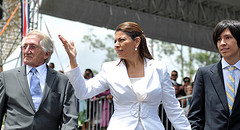
Costa Rican President Laura Chinchilla with her husband and son at her inauguration on Saturday.
Today in Latin America
Top Story — Costa Rica swore in the country’s first female president this weekend as Laura Chinchilla was inaugurated during an open-air ceremony in San José.
Chinchilla, 51, replaces Nobel peace prize winner Óscar Arias as president of the Central American nation and becomes the third female president in Central America after winning a landslide election back in February.
“I will work for a Costa Rica able to maintain moral leadership in the world thanks to defending peace, liberty and human rights,” The Tico Times reported her as saying.
Chinchillia is Arias’ former vice-president and is known to be very close to the former Nobel laureate. She is also a social conservative who opposes both gay gay marriage and abortion.
She takes power during a decent economic climate in Costa Rica, thanks in part to polices enacted by Arias that insulated Costa Rica during the global economic crises.
Dignitaries from throughout the region attended the inauguration including Mexican President Felipe Calderón, Colombian President Álvaro Uribe and Nicaraguan President Nicaraguan President Daniel Ortega.
A delegation from the United States included Washington, D.C.’s Ambassador to the United Nations Susan Rice, Sen. Christopher Dodd, White House environment chief Nancy Sutley and Ambassador to Costa Rica Anne S. Andrew.
During the inauguration that drew thousands of supporters to San José’s La Sabana Park, Chinchilla was joined by her Arias, her husband, parents and 14-year-old son.
Just Published at the Latin America News Dispatch
- An immigration control program is morphing into a prisoner screening program.
Headlines from the Western Hemisphere
North America
- The U.S. State Department added the Mexican states of Chihuahua, Durango and Coahuila to its travel warning list due to concerns over drug-related violence.
- Mexican police found three beheaded bodies showing signs of torture near the resorts of Acapulco.
- Two moderate earthquakes and several smaller ones struck the U.S.-Mexico border this weekend near California’s San Diego and Imperial counties. No injuries or damage was reported.
- Mexico extradited a former governor from the state of Quintana Roo to the U.S. Saturday on charges of helping a cartel smuggle cocaine through the resort of Cancún.
Caribbean
- Cuban independent journalist Dania García was released from prison, where she was held in connection with a charge filed by her daughter. García will face appeal hearing soon.
- The U.S. military presence in Haiti has been reduced to 1,300 from a high of 22,000 troops, following a disaster relief mission launched after the Jan. 12 earthquake.
- Major League Baseball will require top prospects in the Dominican Republic as young as 15 to provide fingerprints and submit to tests for performance-enhancing drugs, the official overseeing MLB’s Dominican operations said Friday.
Central America
- A Connecticut man was charged with repeatedly raping his girlfriend, attacking her with a machete, and calling her his slave after he paid for her to move from Guatemala to the United States.
- A ceremony inaugurating of the construction of a new power plant in Guatemala was held Friday morning.
- The United States said Thursday that it’s time for Honduras to be readmitted Organization of American States (OAS). The country has been suspended from the OAS since last year’s coup.
- Senate Republicans want to block Democratic Party member Carmen Aponte’s nomination as ambassador to El Salvador because of an ex-boyfriend’s alleged ties with Cuban diplomats.
- Nicaraguans residing in Costa Rica mobbed Nicaraguan President Daniel Ortega at the inauguration of Costa Rican President Laura Chinchilla, asking him to help Nicaraguans living in Costa Rica by advocating against new immigration rules.
Andes
- Colombian Green Party candidate Antanas Mockus may beat former Defense Minister Juan Manuel Santos in a second round of voting to become president, according to a poll by Colombian weekly magazine Semana.
- A retired Venezuelan general and critic of President Hugo Chávez was sentenced to eight years in prison on charges of abuse of power, misappropriation of funds and violations of the military code while he was an officer.
- The filmmaker of a documentary that criticized Chevron’s environmental practices in Ecuador was ordered by a New York judge to turn over the film’s unused footage.
- A protest in Caranavi, Bolivia turned violent as demonstrators blocked a major road and burned down a police station on the eve of a countrywide strike.
Southern Cone
- Brazilian state-controlled oil giant Petrobras set a new record for output in April, with 2.03 million barrels of crude per day.
- More than 90 percent of eligible voters made it to the polls in Uruguay’s provincial elections. Ana Olivera of the Communist Party is expected to become the country’s first female governor.
- A conflict over whether to pave a 300-mile road connecting the capital of Guyana with neighboring Brazil has touched off a debate about the role of environmentalism in Guyana’s economic development.
- Paraguay’s President Fernando Lugo is concerned about the possibility of a coup, according to a report from UPI.
Image: Presidencia de la República del Ecuador @ Flickr.
Subscribe to Today in Latin America by Email
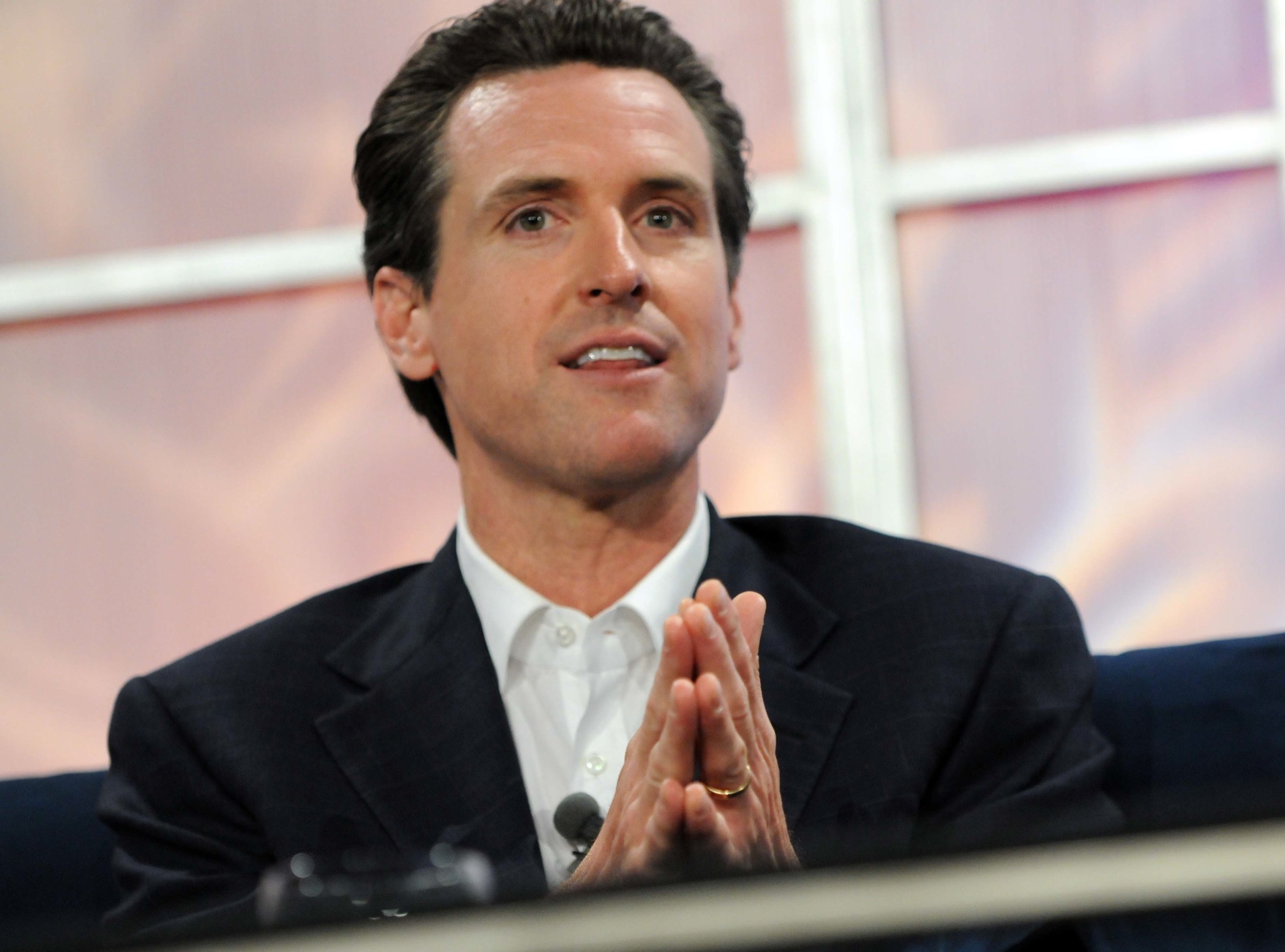
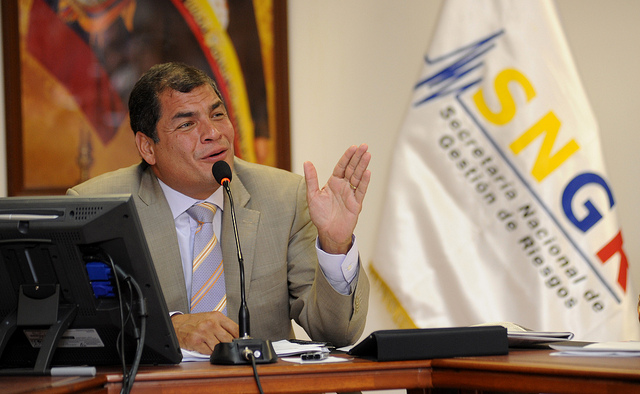
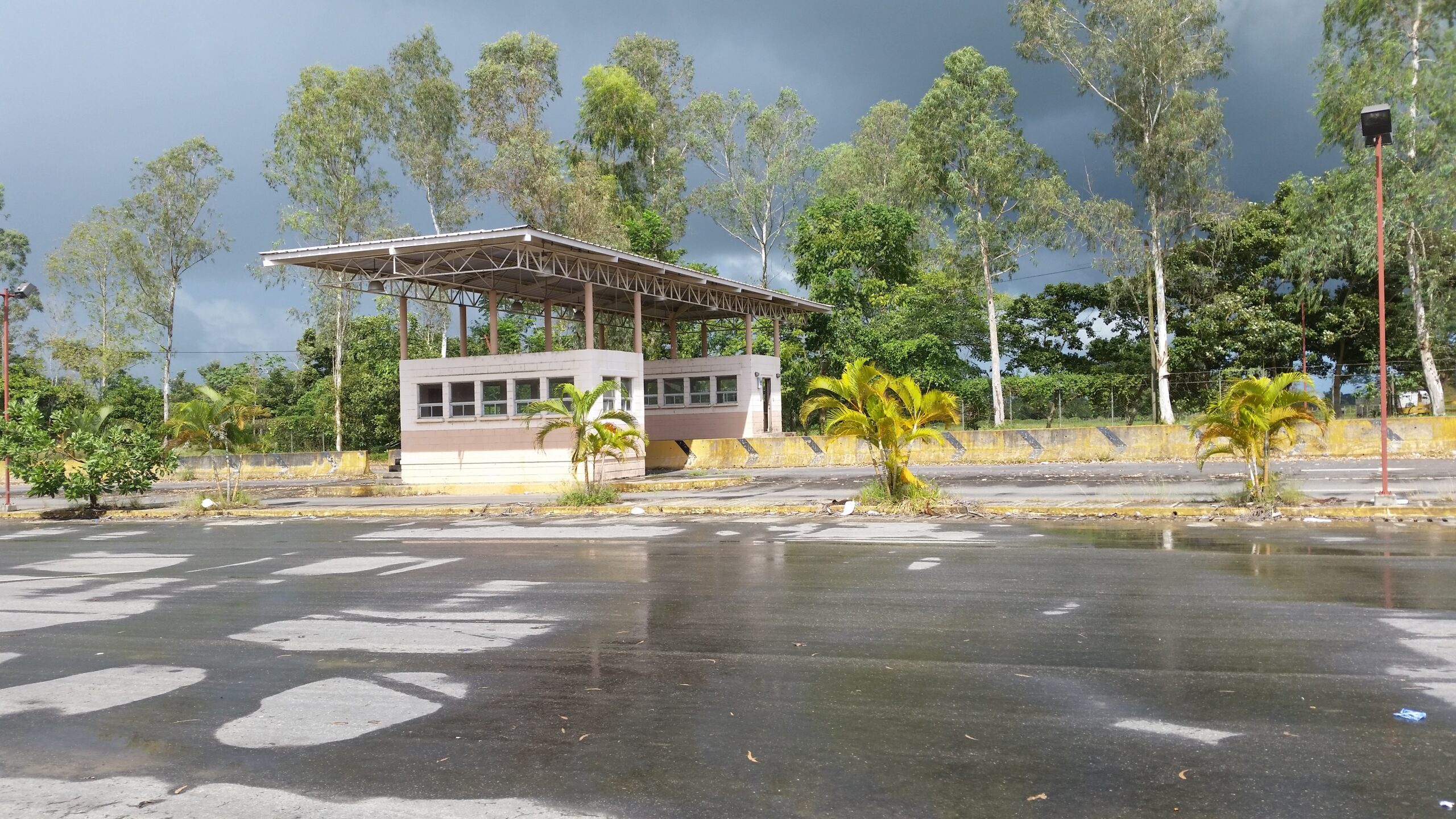
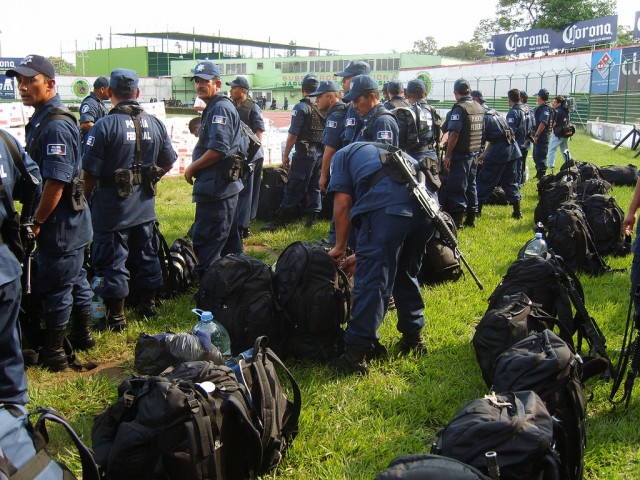


1 Comment
[…] college, spring break crowds, has seen a recent increase in cartel-related activity. Last month, Mexico extradited the former governor of Quintana Roo on charges of helping a cartel smuggle cocaine through […]
Comments are closed.